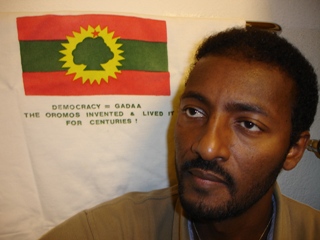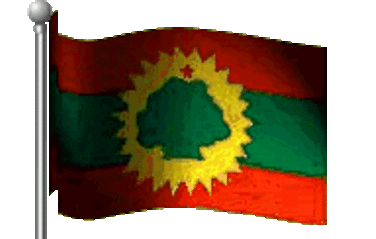LONDON INTERNATIONAL OROMO WORKSHOP Organizing Committee press release.
LONDON INTERNATIONAL OROMO WORKSHOP
London 3rd July 2010
PRESS RELEASE
“THE SCRAMBLE FOR LAND AND ENVIRONMENTAL DEGRADATION IN OROMIA: Consequences for the Future”
The 4th annual International Society OF Oromo Studies (isos) conference, held in London, on the 3rd July 2010, attended by researchers, human rights activists, journalists, NGO representatives, and delegates from Canada, USA, Finland, Sweden, Czech Republic, Italy, Africa, France, Switzerland and UK, examined land grabbing and
its impact on the environment, food sovereignty and security.
Panellists explored history of land use and abuse in Oromia, drivers of the land grabbing, Ethiopian regime’s land sale policy, mining and environmental degradation, land rights and identity and the threat posed by foreign investment to the future survival of the indigenous population.
Farming practice in Oromia has been in existence for many centuries and is contributing substantially to the global crop biodiversity. The large scale industrial farming practice being expanded in Oromia threatens to wipe out unique produces including coffee, Eragrostis tef /xaafii/, sorghum, and barley.
Ethiopia is the only country that does not allow anyone to see the records of what is being sold and who is buying the farmlands. No consultation takes place with the local farmers on the process of land lease and compensation is nominal if any. The Ethiopian land lease price is by far the cheapest in the world at $1/hectare/year for 100 years. Fertile lands of Oromia, Gambella and Benishangul are exclusively targeted.
Rice and other cereals produced, by investors, in Oromia, are being shipped out of the country for lucrative international markets and consumption by investors as the local farmers and their family suffer from chronic malnutrition and millions survive on food handout from donor countries. The conference concluded there can be no justification for cut flower farming in a hungry country.
Toxic chemicals from open mining pits and flower farming are left untreated to pollute the tributaries and major local rivers essential for the survival of the local population and already causing serious public health problems.
Heavy metals like lead and copper as well as toxic chemicals such as sodium cyanide are being discharged directly into rivers used by the locals for drinking. Evidence shows there is no capacity or political will by the Ethiopian state to enforce national regulation or international conventions on the protection of the environment.
Research confirms that deforestation, as a result of extensive mining, is leading to worsening of soil erosion.It was noted that selling off millions of hectares of farmland to foreigners by displacing the local population complicated by political and economic alienation has the potential for a catastrophic social unrest and poses a huge security headache not only for the country but for the whole world.
Overall, evidence presented showed the so called win-win situation is most unlikely to be achievable due to the excess financial muscles of the so called investors who treat food just as yet another commodity and lack of participatory democracy especially in Ethiopia. Participants denounced land grabbing and agreed to coordinate their efforts globally to campaign to STOP the irresponsible greedy practice by the transnational conglomerates.
ISOS ORGANIZING COMMITTEE



0 Comments:
Post a Comment
<< Home